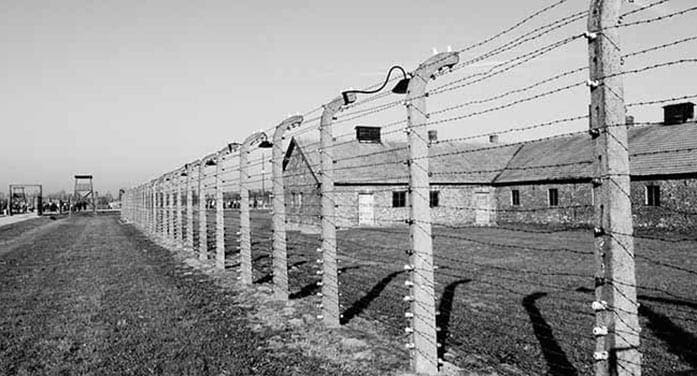 Like many of my generation of German descent, I’ve had to grapple with an uncomfortable family history. Though I know he came to regret his decision, my grandfather was a member of the Nazi Party and was part of the populist movement that brought them to power.
Like many of my generation of German descent, I’ve had to grapple with an uncomfortable family history. Though I know he came to regret his decision, my grandfather was a member of the Nazi Party and was part of the populist movement that brought them to power.
I could make excuses for his decision and try to minimize it, but that would take away from the significance of the lessons from my grandfather.
I recall visiting Germany and having a wonderful time with family and friends. While doing so, certain questions began to haunt me. How could such wonderful people fall for such a horrendous lie? How did genocide happen in such a wonderful place? How many others in this group also struggle with the decisions of their ancestors?
I realized that these questions required that I bravely seek the truth. In doing so, I began finding answers.
One of the key lessons I learned is that genocide doesn’t just happen. It builds on prejudices that are fanned into flames by the propagation of lies. These lies are built on other emotions, like fear and greed. I know my grandfather was afraid of the communists taking over his country and was thus willing to put his trust in Adolf Hitler and the Nazis. Hitler hated both Jews and communists, and he saw them as one and the same.
I also learned that genocide didn’t only happen in Germany. It can happen anywhere one group tells itself it’s better than another group, or that its misfortunes have been caused by another group.
The history of the world is filled with stories of genocide and various stages of genocide are prevalent in many parts of the world today.
Studying the Holocaust has made it clear that the lines between groups of people we once thought were so important are actually just figments of our imaginations. Yet many continue to challenge this truth.
We must face up to Canada’s dark past by Gerry Chidiac
In essence, I’ve sought to know what my grandfather must not have known: that lies of prejudice lead us down a path of destruction. One can’t sacrifice the principles of truth for the illusion of security.
My grandfather also taught me the importance of political freedom, freedom of the press and freedom of expression.
Being rather outspoken, in a discussion with a neighbour my grandfather reflected on his early support of the Nazis. “You know,” he said, “I think Hitler is worse than the communists would have been.”
For this he lost his job as an elementary school teacher, was arrested and put in the army. He could have just as easily been sent to a concentration camp.
I never take democratic freedoms for granted. I know how fortunate I am to be able to vote and to freely express my views with elected officials. I encourage my students to do the same. I cherish diversity, including diversity of opinion, because I know it’s vital in avoiding extremism.
Some have questioned why I put so much effort into writing a weekly column when it’s simply an unpaid community service. The reason why I write is because I can. I have the freedom to express what I’m learning in my constant quest for truth. I’m grateful to my publishers for carrying my views, and I know how fortunate I am to live in a country where I won’t be censored.
Very few people have ever had the freedoms Canadians enjoy today. May we always be mindful of this.
It’s said that history repeats itself until we learn the lessons it’s trying to teach us.
My grandfather made a mistake and he realized it too late.
It’s my hope we have not only learned, but that we have the courage to embrace and to teach the lessons of my grandfather’s generation.
Gerry Chidiac is an award-winning high school teacher specializing in languages, genocide studies and work with at-risk students.
The views, opinions and positions expressed by columnists and contributors are the author’s alone. They do not inherently or expressly reflect the views, opinions and/or positions of our publication.


